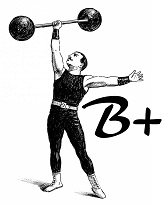What do you get when you get together three of Europe’s most intriguing screen presences (in Ben Whishaw, Franz Rogowski, and Adèle Exarchopoulos) and Ira Sachs at his best? “Passages” — an enticing and thorny love triangle drama that explores narcissism and self-obsession within fractured relationships. In essence, it is about a filmmaker who can’t grasp that the world doesn’t revolve around him — the people in his life not following the script written in his head.
In the past, Ira Sachs has shown the various tenures of relationships, primarily those that could be considered doomed or fractured to the point of being unable to be fixed. However, none of his films have gotten to the point where the fracture goes beyond rationality from one of the partners — blinded by the clouded fog of frustrating devotion. This changes with his latest (and best) film, the enticing and intricate love triangle drama “Passages.” The main character has nobody to blame but himself; he puts himself in a predicament seen in the film. Sachs plays with what he has done before yet puts it into an even more thorny dilemma. There’s an element of “amour fou” placed all over the screen where the toxicity of “Passages’” main character keeps us wondering about his decisions.
Of Love Triangles and Affairs
The narcissism of one’s self curses the bond he has forged the most and breaks it in half. Ira Sachs’ “Passages” follows a self-obsessed filmmaker Tomas (Franz Rogowski). We see him criticizing one of his actors because he cannot walk down some stairs in the “correct” manner. In this brief scene, we learn a lot about Tomas. He’s a man who doesn’t know exactly what he wants until he doesn’t have it. Although he is married to Martin (Ben Whishaw), Tomas is about to enter another relationship with Agathe (the fiery Adèle Exarchopoulos). He’s having an affair and betraying the man he has loved for years. A love triangle is quickly emerging, as in the next scene Tomas says to Martin that he has had an affair.
It leaves the audience shocked as to why Tomas has decided to tell him such a thing blatantly and openly. Like many of us watching, Martin is wholly perplexed and neglectful. He doesn’t fathom that his partner would have an affair and immediately tell him all about it without hesitation or even an inch of remorse. Tomas is so proud of his conquest that he recounts his tales but doesn’t consider Martin’s feelings. What begins as lust contained through extramarital affairs turns into tenderness-filled love. But does it actually turn into devotion? The bond between Martin and Tomas will rupture even more. The former begins his affair as the latter dwells on insensitivity between his two partners. Jealousy fuels Tomas longing for control, occasionally acting like a man-child searching for attention.
Powerful Acting by Exarchopoulos, Rogowski, and Whishaw
This is the main intrigue in “Passages.” And a key detail during the opening scene clarifies its crux. While at first, I didn’t get it, this element in the love triangle clicked with me halfway through. A lightbulb appeared above my head, and a new film emerged before my eyes. This central element all concerns Tomas’s role as a filmmaker. The film he’s directing is indeed called “Passages.” Self-obsession runs his daily life. His role as a filmmaker paves the way for narcissistic behavior. Tomas wants the people around him to follow the script in his head. Otherwise, he gets pissed that it isn’t going his way. One of the reasons why Ira Sachs’ “Passages” surpasses other similar stories is because he doesn’t bother to exemplify Tomas’ self-destructive and solipsistic demeanor.
Instead, Sachs plays with the connection between being a filmmaker and trying to replicate a passionate cinematic venture into reality in a delicate yet suffocating (in a good way) fashion. Sensual in nature, the asphyxiating tenderness gets a hold of the audience so that we’re hooked on their lives. As a portrayal of modern love influenced by withholding, “Passages” is, in all aspects, willful, sensual, and messy, as all most humanistic romantic endeavors are. The physical and emotional attraction between lovers intertwines with separating the art from the artist. Yet, Tomas’ inevitability of loving annulment is driven by empathy. Of course, the performances by this beautiful triad of European acting forces in Exarchopoulos, Rogowski, and Whishaw lift elevate the character’s decisions to the point that we care for them. However, Ira Sachs’ direction and script keep this thorny love triangle drama together.
An Intriguing and Unique Picture
Sachs disassembles their desires, which oppugns the dilemmas he constructs. Love remains a mystery to all of us. And his handling of the ideas is, without a doubt, precise and top-notch. “Passages’” ending is ultimately inevitable. After seeing how the dynamics work in a wounding circle (the repetition caused by Tomas’ actions), you sense that even though the scenes of intimacy are vigorous, there’s a constant loss of attachment and adoration. It begs the question: Can heartbreak be productive to a man who can’t see beyond himself? This is one of the many beautiful characteristics of “Passages.” It is equally heartbreaking and messy, but that makes it ground to our nature.
Ira Sachs presents us with these concepts about the coming and going of love through the lenses of a person not being able to decide until one side loses patience and leaves. Wiser than one might initially expect. Sachs doesn’t conform to monotonous or formulaic narrative decisions, which culminates in an all-intriguing and unique feature.
“Passages” is currently playing at the Sundance Film Festival. The festival goes from January 19 – January 29. Join us for continual coverage.



